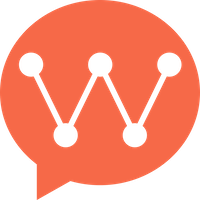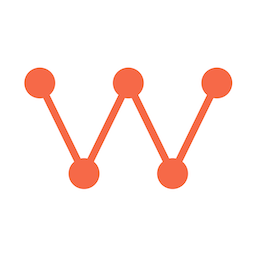Overview WuKongIM defines a set of plugin rules that third-party developers can implement to extend or enhance existing WuKongIM message processing logic. Through plugins, you can implement features like sensitive word filtering, message search, AI chat, and more.
Plugin functionality is only supported in WuKongIM version 2.1.3 and above
Plugin Types User Plugins User plugins can receive all messages from users bound to the plugin. After installation, they need to be bound to users to take effect.
Features :
Only process messages from bound users
Suitable for AI chat, personal assistant scenarios
Implement Receive function
Use Cases :
Chat with large language models: Bind specific user UID, sending messages to this user means sending to the LLM
Personal assistant: Provide customized services for specific users
Global Plugins Global plugins can receive all messages in the system. After installation, they take effect globally.
Features :
Monitor all system messages
No need to bind users
Suitable for system-level functionality
Use Cases :
Sensitive word filtering: Monitor every sent message for filtering
Message search: Build search index for all messages
Data analysis: Statistics and analysis of message data
Development Environment Setup Prerequisites
Go language environment (currently plugin development only supports Go)
WuKongIM source code or running instance
Go PDK plugin development library
Environment Preparation 1. Download WuKongIM Source Code git clone https://github.com/WuKongIM/WuKongIM.git cd WuKongIM
2. Start Single-Node WuKongIM go run main.go --config exampleconfig/single.yaml
3. Create Plugin Project mkdir my-plugin cd my-plugin go mod init my-plugin go get github.com/WuKongIM/go-pdk
Plugin Development Basic Structure Here’s a complete plugin development example:
Plugin Structure Definition
Global Plugin Example
package main import ( " encoding/json " " fmt " " github.com/WuKongIM/go-pdk " ) // Define plugin configuration struct type Config struct { Name string `json:"name" label:"AI Name"` // json is config item name, label is display name in WuKongIM backend } // Plugin struct type AIExample struct { Config Config // Plugin configuration, name must be Config } // Plugin initialization func ( a * AIExample ) Init () error { pdk . Log . Info ( "AI plugin initialized" , pdk . Any ( "config" , a . Config )) return nil } // Plugin information func ( a * AIExample ) Info () pdk . PluginInfo { return pdk . PluginInfo { Uid : "ai_example" , // Plugin unique ID Name : "AI Example Plugin" , // Plugin name Description : "AI chat example plugin" , // Plugin description Version : "1.0.0" , // Plugin version Type : pdk . PluginTypeUser , // Plugin type: user plugin } } // Receive message processing func ( a * AIExample ) Receive ( message pdk . Message ) error { // Parse message content var content map [ string ] interface {} if err := json . Unmarshal ([] byte ( message . Payload ), & content ); err != nil { return err } // Get message text text , ok := content [ "content" ].( string ) if ! ok { return fmt . Errorf ( "invalid message content" ) } // AI processing logic (simplified example) response := fmt . Sprintf ( "AI %s replies: I received your message ' %s '" , a . Config . Name , text ) // Send reply message replyContent := map [ string ] interface {}{ "type" : "text" , "content" : response , } replyPayload , _ := json . Marshal ( replyContent ) return pdk . SendMessage ( pdk . SendMessageReq { ChannelId : message . ChannelId , ChannelType : message . ChannelType , Payload : string ( replyPayload ), }) } // Plugin entry point func main () { plugin := & AIExample {} pdk . Run ( plugin ) }
Core Interfaces PluginInfo Plugin information structure:
type PluginInfo struct { Uid string // Plugin unique ID Name string // Plugin name Description string // Plugin description Version string // Plugin version Type PluginType // Plugin type }
Message Message structure received by plugin:
type Message struct { MessageId int64 // Message ID MessageSeq int64 // Message sequence ChannelId string // Channel ID ChannelType int // Channel type FromUid string // Sender UID Payload string // Message content (JSON string) Timestamp int64 // Timestamp }
Plugin Types const ( PluginTypeUser PluginType = "user" // User plugin PluginTypeGlobal PluginType = "global" // Global plugin )
Plugin Configuration Plugins can define configuration items that users can set in the WuKongIM management interface:
type Config struct { APIKey string `json:"api_key" label:"API Key" placeholder:"Enter your API key"` Model string `json:"model" label:"AI Model" default:"gpt-3.5-turbo"` MaxTokens int `json:"max_tokens" label:"Max Tokens" default:"1000"` Keywords [] string `json:"keywords" label:"Keywords"` Enabled bool `json:"enabled" label:"Enable Plugin" default:"true"` }
Configuration Tags :
json: Configuration item namelabel: Display name in management interfaceplaceholder: Input placeholder textdefault: Default valuerequired: Whether required
Plugin Compilation and Installation Compilation 1. Build Plugin go build -buildmode=plugin -o ai_example.so main.go
2. Upload Plugin Upload the compiled .so file to WuKongIM management interface.
Installation and Configuration 1. Install Plugin In WuKongIM management interface:
Go to Plugin Management
Upload plugin file
Configure plugin parameters
Enable plugin
2. Bind Users (User Plugins Only) For user plugins, you need to bind specific users:
Go to User Management
Select target user
Bind plugin to user
API Reference Send Message func SendMessage ( req SendMessageReq ) error type SendMessageReq struct { ChannelId string // Target channel ID ChannelType int // Channel type Payload string // Message content (JSON string) FromUid string // Sender UID (optional) }
Update Message func UpdateMessage ( req UpdateMessageReq ) error type UpdateMessageReq struct { MessageId int64 // Message ID to update Payload string // New message content }
Logging pdk . Log . Info ( "Info message" , pdk . String ( "key" , "value" )) pdk . Log . Warn ( "Warning message" , pdk . Int ( "count" , 10 )) pdk . Log . Error ( "Error message" , pdk . Any ( "data" , obj ))
Best Practices
Error Handling
Always handle errors gracefully
Use appropriate logging levels
Don’t panic in plugin code
Performance
Avoid blocking operations
Use goroutines for heavy processing
Implement proper timeouts
Security
Validate all input data
Sanitize user content
Use secure API calls
Configuration
Provide sensible defaults
Validate configuration values
Document all configuration options

